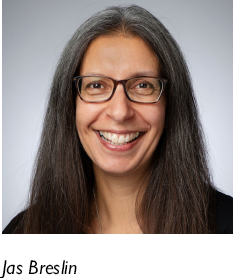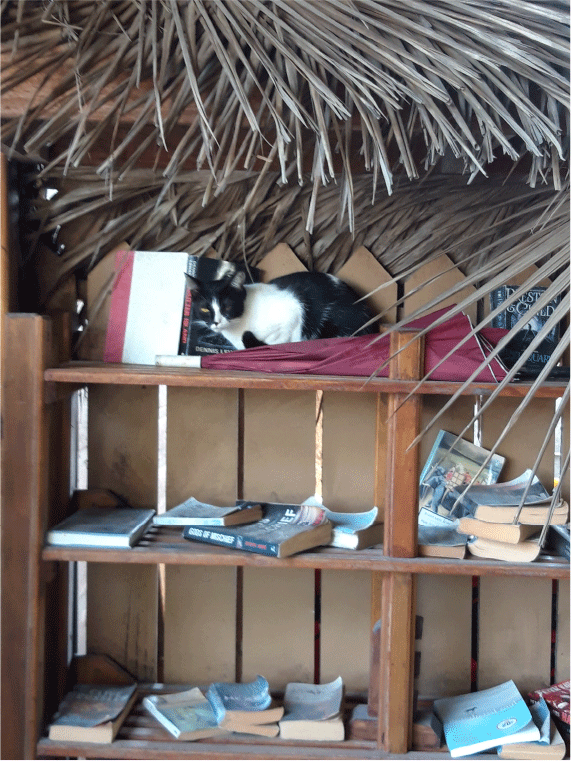You’ve probably noticed, there’s a lot going on in the world right now. Things are changing fast, generally not for the better, and many people are not feeling quite as secure as they once did. Which is why it was so refreshing to interview someone like AALL President Cornell Winston, because this man is one of the most optimistic librarians you are ever likely to meet.
That’s not to say Cornell’s not switched on to the challenges the profession, and indeed the wider world, face right now, and his views on all things to do with legal information are well worth reading, including as they do the best way to get people to volunteer. This is guaranteed to cheer you up, so turn to page 3 to read it first – well, after you’ve read this …
This issue is not all doom and gloom, though, far from it, but we still can’t hide from the fact that there are pressing issues the profession is facing that need to be addressed. Some of these are highlighted in Claire Mazer’s piece on the findings of the BIALL/SLS Academic Law Library Survey, which begins on page 8. The current BIALL President does a great job in drilling down on the detail from this survey, which relates to the academic year 2022/23, and some of the results, if not exactly surprising, might make uncomfortable reading for those working in academic law libraries.
Meanwhile, on page 12, in another data-heavy piece focussing on the academic side of things, Jackie Hanes analyses law database usage at the University of Warwick over the last five academic years. It’s a very interesting article, which also highlights some rather unexpected results.
Not quite so unexpected is an article on AI, as we’ve been trying to include at least one in every issue of LIM – after all, it’s the red-hot topic in the information world at this time. This issue’s nod to the robots is a brilliant look at how generative AI tools respond to fabricated case citations (page 19). Entitled “You’re right to be skeptical!” – which was in fact one of the responses – this piece by Sally McLaren and Lily Rowe reveals some worrying responses from some of these tools. It’s a must-read, and when you’re finished, why not try a little AI-baiting yourself?
Meanwhile, on page 26 Dr Charlotte Smith of The National Archives explores open justice in the archives, for while we’re all familiar with the notion of open justice in the justice system, this issue is also very important. Charlotte does a great job in going through how this is addressed right now, highlighting the many issues, and she then identifies some questions that the justice system and archives might consider when developing the policy and the methods relating to archived court records.
A couple of the articles above were originally conceived and delivered as presentations at last year’s BIALL Conference in Leeds, and there are sure to be more interesting talks at this year’s extravaganza in Birmingham. On page 32 we’ve put together some reasons why you really should make the effort to attend, including what there is to do and see in the UK’s second city while you’re there – there’s far more than you might assume, unless you actually live in Birmingham. We’ve also included a handy guide to who is talking about what and where they’re talking about it, so that you can plan your visit to the stunning Library of Birmingham, or the characterful Woodman pub, between those presentations that float your boat the most.
REGULAR FEATURES
After a couple of issues where we’ve had no room for a Product Showcase, Spring sees the return of this always-popular regular, with a very informative look at HeinOnline’s comprehensive digital collection of nominative reports, which has transformed access to these important historical legal records. On page 40 HeinOnline’s Lauren Mattiuzzo explains the significance of these reports and how this platform has been developed.
Meanwhile, in our International Perspective slot, starting on page 48, Dr Fahimeh Abedi, Prof. Tim Miller and Prof. Atif Ahmad, report on a survey they undertook in Australia, with the aim of assessing the issues lawyers face when advising on emerging technologies in what is fast becoming a very complicated digital world. It’s a robust piece of research and the findings will certainly be of interest to legal information professionals, as will the recommendations made.
The Kind Librarian probably describes quite a few of our readers, but on page 59, in the first of two book reviews in this issue, Susanna Winter – a very kind librarian who very kindly looks after our reviews – takes a look at a book with this very title. The work, which is written by Helen Rimmer, looks at how kindness can actually be cultivated within library settings to help create more supportive, effective and resilient workplaces. Sounds like a great idea to us.
In our second book review, Margaret Watson gets to grips with Introduction to Documentation Studies by Niels Windfeld Lund, a theoretical work that examines the very nature of documents – some examples might surprise you – and then goes on to use case studies drawn from music, literature, art, science, politics and law to show how all this works on a practical level. It sounds like an absorbing read, but if you haven’t got the time to leaf through it yourself, Margaret has done a brilliant job of going through the basics here, so turn to page 61 to find out more.
One particularly important document to everyone in BIALL is, of course, Legal Information Management, and it’s an interesting historical document, too, as our regular trawl through LIMs gone by often shows. In this issue our delve into the LIM archives takes us back to 1975, and there was much to write about in The Law Librarian, as this journal was then known, 50 years ago, including heavy document loads breaking paving stones, and random yaks and llamas in Nottingham city centre.
ACKNOWLEDGEMENTS
As always, our thanks go to Katherine Read and Heather Memess for their excellent work in compiling the Current Awareness section at the back of the journal. Also, LIM would be nothing without our contributors, so a very big thanks to each and every one of you who has supplied us with copy for this issue.
We would also like to thank our team of proofreaders for their work, especially as it’s been a bit hectic over the past few months while Cambridge University Press has been catching up in the wake of the cyberattack that it suffered last year. But we’re just about back on track now, and fingers crossed you will be reading this when it’s still technically Spring!
Talking of CUP, this is our last year with it after a 21-year relationship, and we will dearly miss working with Craig Baxter and Jamie Davidson, who are always never less than wholly professional and very helpful. As this is written, BIALL’s close to signing a deal with a new publisher, and hopefully we will be able to bring you full details on this in the Summer issue.
Don’t forget, though, that in the final analysis this is your journal, and what better way of celebrating that fact than having something published within its covers? So, if there is something you would like to write about, then please contact us on limeditor@biall.org.uk. It will do wonders for your professional profile and look great on your CV, and you might be surprised at just how enjoyable writing up your thoughts, ideas and experiences can be. If it helps to focus the mind, we’re particularly interested in receiving articles on AI (always popular right now); research and resources guides on specialised areas of law such as family, immigration, pensions, property, arbitration etc.; evaluations of online legal databases; implementations of new technology or services; and strategies for effective legal information management.
If that all seems a bit too much like hard work, well why not have a stab at our caption competition (below). If we get a good response, and we can find more cute or funny images, we might make it a regular feature.


CAPTION COMPETITION

We spotted this little librarian hard at work recently and thought the snap might make for a nice caption competition, So, any ideas? Send your suggestions to us at limeditor@biall.org.uk
The provider of the funniest caption gets a drink, or cake, at the BIALL Conference in Birmingham, courtesy of the editorial team. If you’re not going to the Conference, we’ll figure something else out. And if your caption is 3500 words long, then we’ll treat it as an article!


